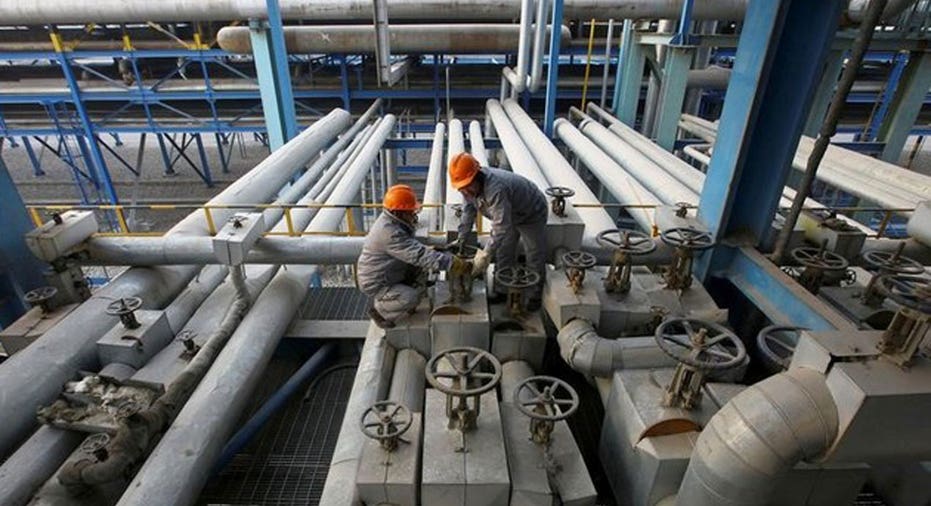Oil prices rise on U.S. push to shut out Iran

(Reuters)
Oil prices rose on Wednesday on supply disruption in Canada, falling U.S. crude stocks, uncertainty over Libyan exports and U.S. demands that importers stop buying Iranian crude from November.
Brent crude was up 65 cents a barrel at $76.96 by 1155 GMT. U.S. light crude was 65 cents higher at $71.18.
"Fundamentals still remain favorable for oil prices to rise over the next six months," said BNP Paribas senior oil strategist Harry Tchilinguirian. "We would not be surprised if Brent were to trade once again above $80 a barrel."
A supply outage at Syncrude in Canada has locked in 350,000 barrels per day (bpd) of crude, with repairs expected to last at least through July.
The fall in Canadian exports has helped drain supplies of heavy crude across North America and contributed to a major draw in U.S. crude oil inventories, analysts say.
The American Petroleum Institute reported a much-higher-than-expected 9.2 million barrel fall in U.S. crude inventories in the week to June 22 to 421.4 million barrels.
Analysts polled by Reuters had estimated on average that crude stocks would fall 2.6 million barrels last week.
Also keeping markets on edge was the risk of a disruption to supplies from Africa and the Middle East.
In Libya, a power struggle between the internationally recognized government and rebels has left it unclear who will handle the country's oil exports.
The future of Iranian crude exports is also unclear.
The United States has told all countries to stop importing Iranian oil from November, as the Trump administration ramps up pressure on the Islamic Republic.
Trying to make up for disrupted supply, the Organization of the Petroleum Exporting Countries said last week it would increase output.
Saudi Arabia plans to pump a record 11 million bpd in July, up from 10.8 million bpd in June, an industry source familiar with Saudi plans told Reuters on Tuesday.
Despite widespread international opposition to the U.S. stance on Iran, OPEC's third biggest producer, analysts expect a significant reduction in its exports, perhaps in excess of 1 million bpd.
Iran pumped 3.8 million bpd in May, Reuters' monthly survey showed.
Goldman Sachs said the planned unilateral U.S. sanctions against Iran would likely have a "high level of efficiency".
Risk consultancy Eurasia Group said it was "very unlikely" that the United States would succeed in ending Iranian oil sales as fast as it hoped.
But it said: "We are increasing our estimate of oil likely to come off the market by November to about 700,000 bpd — another bullish factor for prices."
(Additional reporting by Henning Gloystein in Singapore; Editing by Jason Neely and Edmund Blair)



















